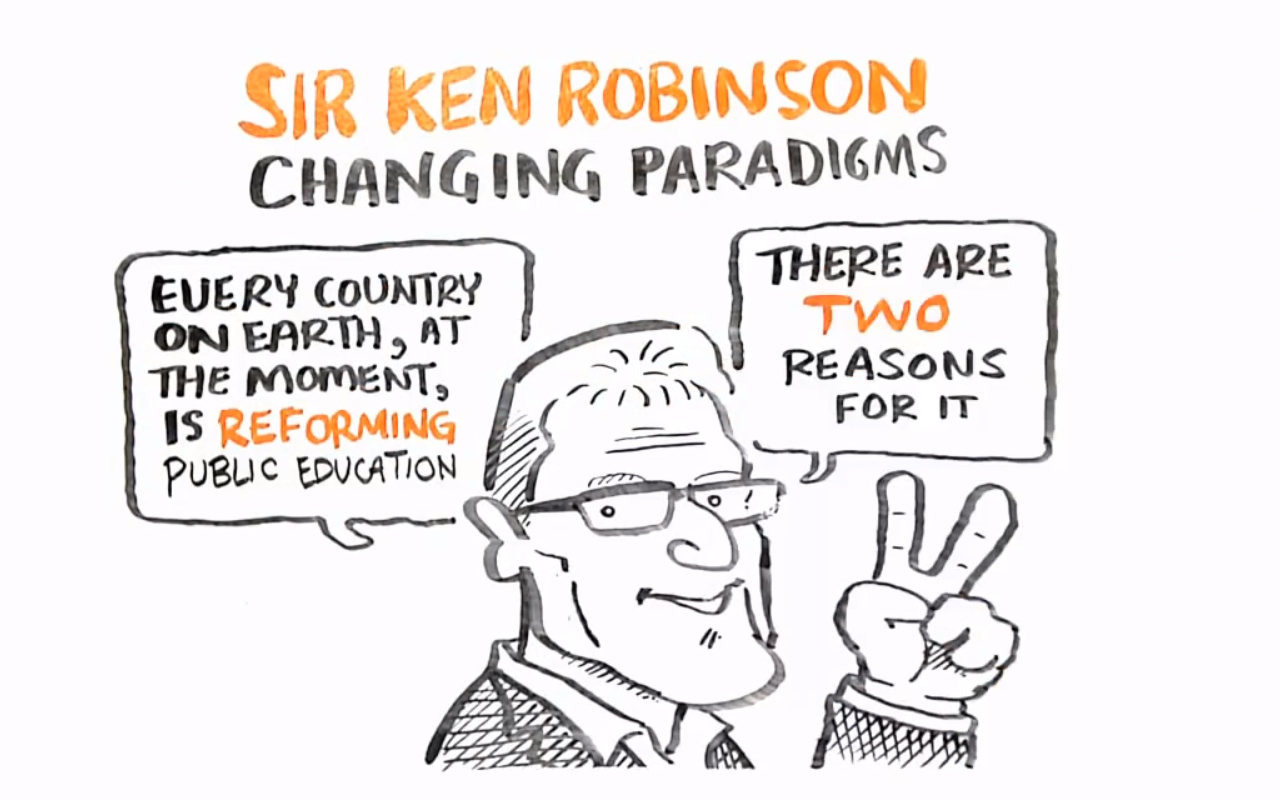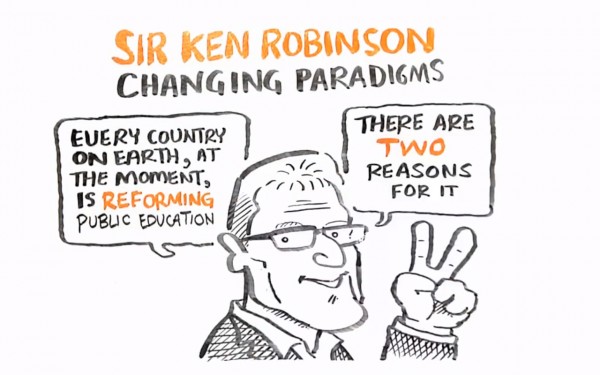School Kills Creativity (2006) and its transcript.
Bring on the learning revolution (2010)
Change education paradigm (2010), which an animation based on a talk at Royal Society of Arts
How to escape education death valley (2013)
After spending hours of watching and re-watching these videos, I started to wonder whether or not I am addicted. Aside from the British humor, the big draw for me is the historic perspective Sir Ken provides on the whole system of public education and how it influences, explicitly and implicitly, my way of thinking. These insights help to partially explain the range of attitudes of people around me towards school and work.
In summary, Sir Ken proposes that creativity should be cultivated and nurtured at school and should be given the same weight as literacy and maths. His analysis is that current public education system was formed to meet to economic need of industrial revolution, and is based on the enlightenment model of minds, which prizes deductive reasoning and literacy of classics. It creates an hierarchy of subjects, with maths and languages on top, humanities in the middle, and arts at bottom, and it divides people into the academic (smart) and the non-academic (not smart) and produces (or manufactures, metaphorically speaking) industrial workforce at a grand scale. This system has alienated many students whose interests do not lie in the so called academic abilities. Moreover, it is no long suited for our current society, where the challenges of future cannot be solved by the experiences of the past. Based on the premises that the human talents are inherently diverse, dynamic, and distinct, and that human minds are inherently curious and creative, Sir Ken argues for an education system that allows students to explore their unique interests and potentials, and fosters skills and encourages pursuits in all areas.
I consider myself being one of the fortunate students who actually enjoyed those high-ranking subjects. Having gone through the full ladder of academic training, I did see and feel a lot of the suffering of my peers, from high schools, to universities, and to graduate schools. Sometimes I wonder if my climbing up the academic ladder is at the expense of my peers’ opportunities. That very thought, I think, is perhaps an example what Sir Ken calls an example of “linearity of thinking”; it assumes that the only way to a better and more fulfilling life is through higher academic education. I have, also, judged people, based on their academic abilities, but I don’t think my teachers or I ever consider academic abilities as the only metric. However, the quantitative assessment of students by the system, such as GPA, did affect the confidence of a lot of my talented peers, from high schools to grad schools. I resonate deeply with what Sir Ken said “many highly talented, brilliant, creative people think they’re not, because the thing they were good at at school wasn’t valued, or was actually stigmatized.”
There is, however, a mirror problem, rooted, I believe, also in the linearity of thinking. It is that those who have sailed through various levels of academic training think that they are better than those who have not and that they gradually developed a sense of superiority. They start to think that they deserve or entitle a better job or life. At an individual level, this mentality is perhaps as serious as those who lost their confidence. For a system, it is equally dangerous because these people may have already lost their capacity to reinvent their lives and thus become “unmovable”.
I share Sir Ken’s vision of an idealistic world where everyone can find their passion, or element, as he calls it. It is something said and repeated by many other peoples as well, from business, to entertainment, and to sports. Not all of them are related to education, but together I think they make the point that education is important factor but not the only factor. There are stories of those who achieve great things despite their education, but there are also untold stories of those who squandered their talents themselves, again, despite their education. Which reminds me of the quote: “A man of genius is seldom ruined but by himself”. — Samuel Johnson.

